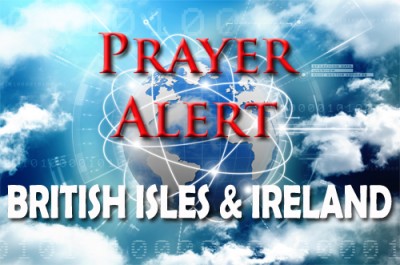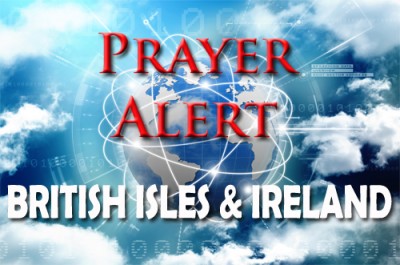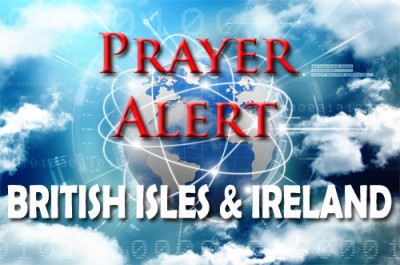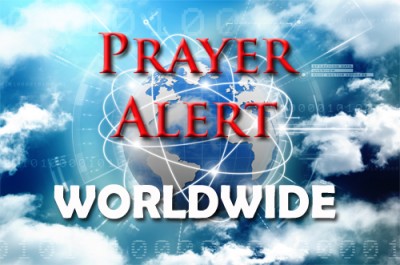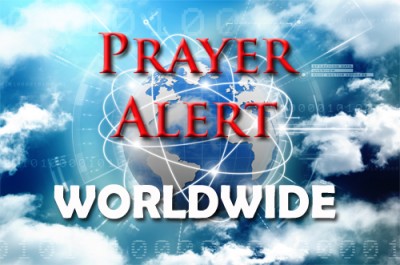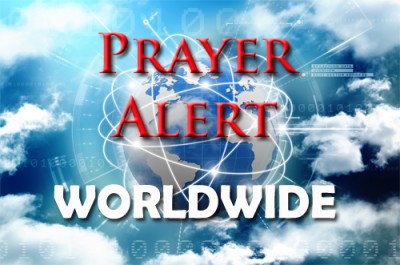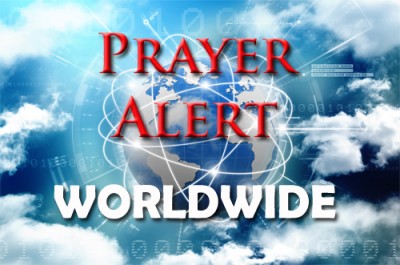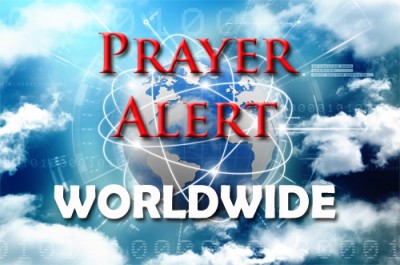Mali: Swiss nun kidnapped by British militant?
29 Jan 2016A video released by al-Qaeda features a militant with a British accent claiming responsibility for kidnapping Swiss nun Beatrice Stockly in Mali. She was taken on 7 January when armed militants surrounded her home in Timbuktu. Beatrice is accused of ‘declaring war against Islam’. A man with a British accent said, ‘We, al-Qaeda in the Islamic Maghreb, declare our responsibility for the kidnapping of this Christianising kaffir Beatrice Stockly, who by her work drove out many from the fold of Islam by seducing them with crumbs of this worldly life.’ The sister was previously kidnapped in 2012 but broke her conditions of release by refusing to stop preaching the gospel. Beatrice appears in the video wearing a hijab and next to a flag. The group also claimed responsibility for the terror attacks two weeks ago on a hotel and restaurant in Burkina Faso when thirty people were killed.
Disability benefit cuts
29 Jan 2016The Government has been defeated in the House of Lords over plans to cut the benefits of people with illness and disabilities. Ministers wanted to cut Employment Support Allowance (ESA) by £30 a week to spur new claimants to return to work. But Labour, Lib Dem and independent peers joined forces to block the move, arguing it would make it harder for those affected to pay for the support that might allow them to find work. The Government may try to overturn this decision at a later date in the House of Commons. Mencap's Rob Holland, who is chair of the Disability Benefits Commission, said: ‘The Government wants to get more disabled people into work, but as a sector we have warned that cutting ESA and Universal Credit will directly undermine that commitment, whilst pushing disabled people further from work and closer to or into poverty.’
Older people are being 'let down by NHS’
29 Jan 2016English and Welsh health leaders say, ‘Older people in need of urgent help are being failed by the NHS’. Too many over-65s end up in Accident and Emergency unnecessarily because of a lack of help when they fall ill. Once in hospital, they face longer stays and losing some of their independence. The leaders call for radical steps, including providing urgent care at home and getting doctors to carry out ‘ward rounds’ in care homes. They say that older people need more help navigating the complexities of the health and care system. They point to an Age UK scheme in Cornwall, where the frailest people have coordinators helping to organise their care. Their report also highlights a scheme in north-east London where hospital and ambulance staff are working together to provide emergency care in people's homes. Nurses and paramedics assess and treat older people who have fallen but not suffered a fracture. Equipment such as walking frames can be arranged.
Australia: national call to prayer
29 Jan 2016On 7 February, designated as National Day of Prayer and Fasting, Christians of all denominations will unite, pray, and fast for revival and transformation in Australia. The Prayer Day team have a vision for a country where children can flourish and play safely in the streets; marriages produce happy families and build a strong and vibrant nation for the greater good of all; the contribution to the local community by people of faith is valued; and the Judeo-Christian ethics and values that Australia was built upon are the source of national prosperity for future generations. Their vision statement says, ‘We live to see a society where justice, fair play and the common good provide the foundation for the legal, governmental and social framework that protects every Australian, and the same protection is afforded to the ageless institutions of marriage and family and the Judeo-Christian heritage and traditions that our nation has been built upon.’
Ethiopia's northern regions have been hit by a drought that is estimated to be more terrible than that of 1984, which led to the deaths of over one million people. The United Nations and Save the Children are appealing for funds to save lives and ensure that Ethiopia's current developmental momentum remains on track. But how could this happen again? Thirty years ago a global humanitarian appeal raised many millions, and foreign NGOs established a host of infrastructure projects designed to prevent such a disaster recurring. Donor fatigue? The harsh truth is that Ethiopia is competing for international funds against the likes of war-torn Syria and Yemen, and a migrant crisis. In addition, the cogs of the bureaucratic donor system are not renowned for turning quickly. 400,000 children are suffering from severe acute malnutrition and ten million more need food aid.
South Africa: worst drought on record
29 Jan 2016The parched landscape of Free State in South Africa has whirlwinds tossing huge spirals of dust into the sky. Usually January brings tremendous thunderstorms, with up to 90mm of rain falling on this traditional farming heartland of the country. But South Africa is experiencing the worst drought in recorded history. Small-scale farmers, who are mostly black, are worst affected; unable to plant crops, many are forced to kill or sell their livestock at below market value prices. Increased food prices, a stagnating economy and 25% unemployment have created a scenario for social unrest. Some commercial farmers fear that the country could see widespread social disturbances. They are concerned that the drought could precipitate land occupations similar to those in neighbouring Zimbabwe. Members of the ANC Youth League recently travelled to Zimbabwe to research Zimbabwe’s land reform programme. Four thousand white-owned farms have been occupied since the land grabs began in Zimbabwe fifteen years ago.
Syria: peace talks or military solution?
29 Jan 2016The UN special envoy on Syria, Staffan de Mistura, hopes to start peace talks in Geneva today between the government and opposition groups. The sides will not talk directly to each other to begin with, but negotiators will move between them. Priorities are to agree a general cease-fire, stop the IS threat, and clear the way for humanitarian aid. On Monday, the day the talks were originally scheduled to start, Mr de Mistura said, ‘We want to ensure that when and if we start, it will be on the right foot. It will be uphill.’ Turkey's foreign minister said that any participation of Kurdish forces in these peace talks would be dangerous and spell the end of the UN-led initiative. Meanwhile US vice-president Joe Biden said that the United States and Turkey are prepared for a military solution against IS in Syria if the Syrian government and rebels fail to reach a political settlement. See
North Korea
29 Jan 2016For fourteen years North Korea has been the most dangerous place in the world to be a Christian. Believers face arrest, torture, imprisonment and death for daring to think there is a higher authority than Kim Jong-un. Many follow Jesus in secret. Parents don't even tell their children about their faith, for fear they will be revealed. Thousands of Christians are trapped in horrific labour camps, prison camps, and isolated closed villages. Most will stay there until they die. Despite the risks North Koreans are still choosing to follow Christ. A social stratification system called 'Songbun', similar to the Indian caste system, divides people into three classes: the loyal, the wavering and the hostile. These are further divided into 51 subclasses. Christians are part of the 'hostile' class, with Protestant Christians being number 37 and Catholic Christians number 39. Food and basics are often scarce, so pray for protection for those who smuggle food, medicine and Christian material into the country.
